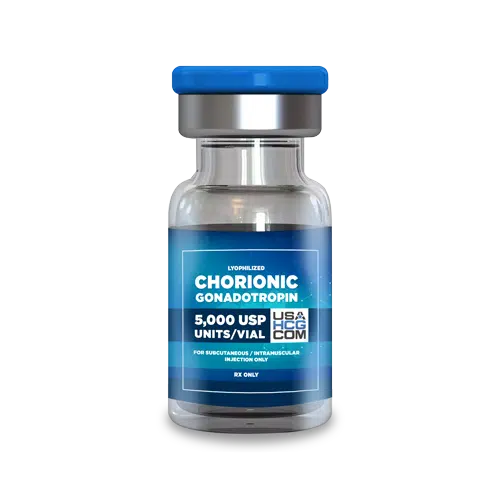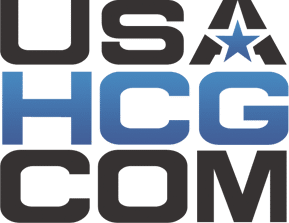The HCG Diet Phase 1, also known as the Loading Phase, is the initial stage of the HCG diet protocol. This phase typically lasts for 2 days and serves as a preparatory period before the more restrictive weight loss protocol begins.
What is the HCG Diet Phase 1?
The HCG diet is a weight loss program that combines the use of human chorionic gonadotropin (HCG) hormone with a very low-calorie diet. Phase 1 is designed to prepare the body for the upcoming calorie restriction and hormone supplementation.
Brief Overview of the HCG Diet
The HCG diet consists of three main phases:
- Loading Phase (Phase 1)
- Weight Loss Phase (Phase 2)
- Maintenance Phase (Phase 3)
Explanation of HCG Phase 1 (Loading Phase)
During Phase 1, participants begin taking HCG supplements while consuming a high-calorie, high-fat diet. This seemingly counterintuitive approach is believed to prime the body for the dramatic calorie reduction that follows.
Duration of Phase 1
The Loading Phase typically lasts for 2 days, although some protocols may extend it to 3 days.
Goals of HCG Diet Phase 1
The primary objectives of the Loading Phase are:
- Prepare the body for weight loss: By saturating the body with calories and fat, the Loading Phase aims to prepare the metabolism for the upcoming calorie restriction.
- Build up fat stores: Consuming high-fat foods during this phase is thought to replenish and build up fat reserves, which the body will then use for energy during the low-calorie phase.
- Begin HCG supplementation: Participants start taking HCG supplements, usually in the form of injections, drops, or pills, to prepare the body for the hormone’s effects.
What to Eat During HCG Phase 1
During the Loading Phase, participants are encouraged to consume:
- High-fat foods: Foods rich in healthy fats are emphasized during this phase.
- High-calorie foods: Calorie-dense foods are recommended to maximize calorie intake.
- Examples of recommended foods: Some suggested foods for the Loading Phase include:
- Salmon sautéed in olive oil and drizzled with melted butter
- Bacon cheeseburgers
- Chicken liver sandwiches
- Nuts
- Avocados
- Pizza
- Hamburgers with gravy and sauces
- Desserts
While indulging in high-fat and high-calorie foods is encouraged during this phase, participants should still aim to choose healthier options when possible and avoid trans fats. Some foods that are high in trans fats and should be avoided include:
- Commercially baked goods such as cookies, cakes, and pastries
- Fried fast foods, including French fries and fried chicken
- Stick margarine and vegetable shortening
- Microwave popcorn
- Frozen pizzas
- Some types of crackers and biscuits
- Certain brands of peanut butter containing partially hydrogenated oils
- Some cereal bars
- Doughnuts
- Fried fish and chicken from restaurants that haven’t banned trans fats
It’s important to note that many countries, including the United States, have banned or restricted the use of artificial trans fats in commercially produced foods. However, small amounts may still be present in some products, so it’s always best to check the ingredient list for “partially hydrogenated oils” and avoid foods containing them.
Foods to Avoid in Phase 1
While the Loading Phase encourages high-calorie and high-fat consumption, there are still some foods that participants should avoid:

- Low-fat options: During this phase, it’s best to steer clear of low-fat or fat-free products, as they don’t align with the phase’s goals.
- Diet foods: Foods marketed as “diet” or “light” should be avoided, as they typically contain fewer calories and less fat than desired for this phase.
- Artificial sweeteners: These should be avoided as they may interfere with the body’s natural responses to sugar and calories.
HCG Supplementation in Phase 1
HCG supplementation is a crucial component of the diet protocol, starting from Phase 1:
- Types of HCG supplements:
- Injections: Considered the most effective form of HCG delivery
- Drops: Sublingual drops are a popular alternative to injections, but usually do not contain the hormone in an active form.
- Pills: Oral HCG supplements are also available but may be less effective
- Dosage recommendations: Typical dosages range from 125 to 200 IU daily for injections, while dosages for drops and pills vary by product. It’s crucial to follow the specific protocol provided by a healthcare professional.
- Importance of medical supervision: Due to potential risks and side effects, it’s essential to undergo the HCG diet under the guidance of a qualified healthcare provider.
Tips for Success in HCG Phase 1
To maximize the benefits of the Loading Phase, consider the following tips:
- Track your food intake: Keep a detailed food diary to ensure you’re consuming enough calories and fats during this phase.
- Stay hydrated: Drink plenty of water to support your body’s functions and prepare for the upcoming low-calorie phase.
- Prepare mentally for the next phase: Use this time to mentally prepare for the significant calorie reduction in Phase 2. Plan meals, gather recipes, and set realistic expectations.
Common Mistakes to Avoid
When following the HCG diet, especially during Phase 1, it’s crucial to be aware of potential pitfalls that could hinder your progress. Here are some common mistakes to avoid:
Not Eating Enough Calories
During the loading phase, it’s essential to consume enough calories to prepare your body for the upcoming low-calorie phase. Some people mistakenly restrict their calorie intake during this phase, which can lead to increased hunger and difficulty adhering to the diet later on.
Choosing the Wrong Types of Foods
While Phase 1 encourages high-fat consumption, it’s important to focus on healthy fats rather than processed or unhealthy options. Opt for foods like avocados, nuts, olive oil, and fatty fish instead of trans fats or excessive saturated fats.
Skipping HCG Doses
Consistency is key when it comes to HCG supplementation. Skipping doses can disrupt the hormone’s effects and potentially reduce the diet’s effectiveness. Always follow your healthcare provider’s instructions regarding HCG administration.
Transitioning to Phase 2
What to Expect After Phase 1
After the loading phase, you may experience a temporary weight gain. This is normal and expected. As you transition to Phase 2, you’ll likely notice rapid weight loss initially, which can be motivating but also challenging.
How to Prepare for the Low-Calorie Phase
To prepare for Phase 2:
- Mentally prepare yourself for the significant calorie reduction
- Stock up on approved foods for the low-calorie phase
- Plan your meals in advance to ensure you’re meeting nutritional requirements
- Stay hydrated and consider taking approved supplements as recommended by your healthcare provider
Potential Side Effects and Precautions
Temporary Weight Gain
During Phase 1, you may experience a temporary weight gain due to the high-calorie intake. This is normal and should not cause concern, as it’s part of the process.
Digestive Issues
Some people may experience digestive discomfort, such as constipation or diarrhea, during the transition between phases. This is often due to the dramatic change in diet and calorie intake.
Who Should Avoid the HCG Diet
The HCG diet is not suitable for everyone. It should be avoided by:
- Pregnant or breastfeeding women
- People with certain medical conditions, such as heart disease or diabetes
- Those with a history of eating disorders
- Children and adolescents
Conclusion
Phase 1 of the HCG diet plays a crucial role in preparing your body for the weight loss process. By following the guidelines and avoiding common mistakes, you can set yourself up for success in the subsequent phases.
While the HCG diet can be effective for some individuals, it’s essential to approach it with caution and under professional guidance. Always consult with a healthcare professional before starting any new diet regimen, especially one as restrictive as the HCG diet. Remember, sustainable weight loss is a journey that involves long-term lifestyle changes. The HCG diet should be viewed as a potential tool in this process, not a permanent solution.
I’m Amy, a health blogger who’s passionate about helping people achieve their weight loss and wellness goals through evidence-based information and practical tips on nutrition, exercise, and self-care. When I’m not blogging, I enjoy hiking, practicing yoga, and experimenting with healthy recipes in the kitchen.






